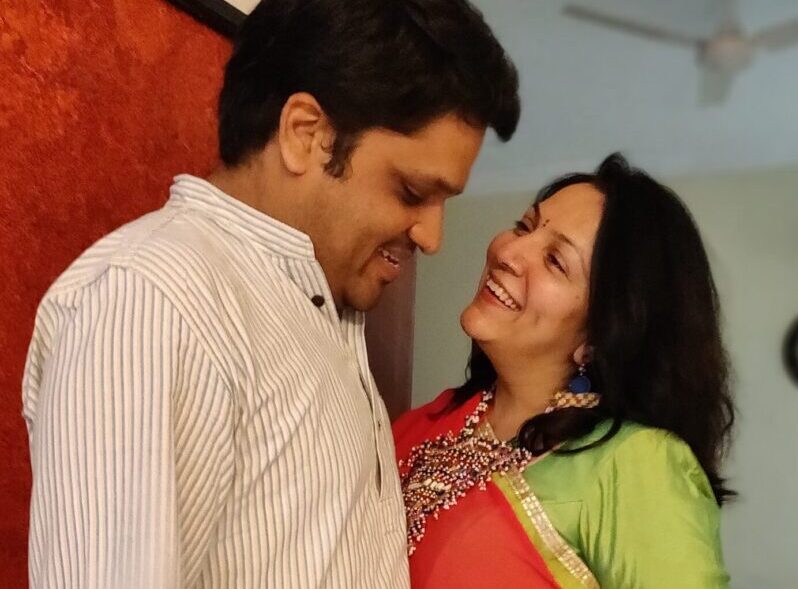INDIA. Bangalore. Now in its fourth year, Lahe Lahe is a one-of-a-kind versatile space in Kodihalli that was developed with an unusual mission: to celebrate mediocrity.
Founders Nikhil Thard and Mansee Thard are transplants to urban Bangalore. Missing a sense of belonging, the couple created their own “ecosystem,” from the ground up. They purchased a multi-story building and renovated the main floor into a marketplace of local items, a pottery studio, a meditation room, and a café with a “hang-here” vibe. “The intent,” said Nikhil in an interview with Transcontinental Times, “was to create a place where people aren’t judging you and where there is no competition.”

Vulnerability, our greatest strength. Nikhil shared the philosophy that drives this creative venture. Society “only celebrate[s] the 1% of the time we are successful,” so people are afraid to make mistakes, to “make a fool of ourselves.” At Lahe Lahe, “we celebrate authenticity and allow people to be true to who they are.” He continued, “We stay away from politics, religion, and competition because these divide people. Authenticity always connects. Vulnerability is our greatest strength.”
Flexibility is key to success. How does a space encourage a way of being? Lahe Lahe is a model of fluidity in itself. All the fixtures and furniture are easily shifted. Floor cushions in the main café can be stacked in a corner to make room for a lecture or a community discussion; futon cushions in the meditation room can be used as a bedroom for artists-in-residence or for an individual therapy session. There are several public spaces offered, each with a different feel, each with inherent fluidity. As “each moment is unique” Lahe Lahe adjusts to the needs of the moment.

Humanitarian initiatives. Prior to the COVID-19 pandemic and the phased lockdowns that swept India in late March, Lahe Lahe offered a variety of classes, from pottery for beginners to poetry nights. They had a weekly wellness movie night facilitated by a mental health professional to allow for discussion of difficult issues like suicide and autism. Dance classes were held in the rooftop studio and children filled the space for summer camps. And while nearly every other business in Bangalore was shuttered, Lahe Lahe, true to its mission, converted both the café space and office space into an experimental laboratory. Lahe Lahe went into research and development of ventilators, UVC disinfectants, and mask production. In partnership with Protovillage, a model sustainable community outside Bangalore, more than 7,000 masks were distributed.

Lahe Lahe’s kitchen was also a model of innovation and flexibility. Prior to lockdown, the café used a “pop-up chef” model. The menu changed weekly, offering the opportunity for a home cook to share their meals in a commercial venue. When the café closed under lockdown restrictions, the kitchen kicked into full gear: More than 300 meals were provided daily to stranded migrant workers and anyone in the community in need of food. They also initiated a toy drive to provide entertainment for local children isolated in their homes. These initiatives were made possible through personal investment, international donations, and the support of local authorities who helped oversee safety measures. “People were falling all over each other to help.” Nikhil paused as he became emotional. “The humanity of India was mind-blowing.”
“People don’t believe in goodness,” Nikhil said. “People don’t believe in a free lunch, but it’s here. Come. Take it.” Nikhil, a Hindu, felt it was very important to understand the nature of hunger, so he practiced roza (fasting) during the month of Ramadan, normally practiced by Muslims. “I couldn’t believe how free I became.”

Rising from adversity. All of these initiatives were begun during one of the most difficult times that Nikhil had experienced in his life, both professionally and personally. The uncertainty of COVID-19’s impact on his many business ventures put enormous pressure on both his colleagues and his partnerships. When it seemed like everything was falling apart, Nikhil shifted his thinking. “The goal became to help one person a day- not the whole world. [I] came to understand that one person going through the worst time in his life…could actually make an impact.”
Lahe Lahe is both a space and way of being that reflects compassion, gratitude, and imperfection. Thard would say that Lahe Lahe is an example of how 5 years of “spectacular failure” can evolve into a self-sustaining reinvention of capitalism. “When you enter Lahe Lahe, we ask that you leave your shoes (and prejudices) at the door as it’s important to be grounded, to be authentic, to be imperfect, to move away from transactional relationships and toward compassionate gratitude.”
The reporter was an artist-in-residence at Lahe Lahe.



